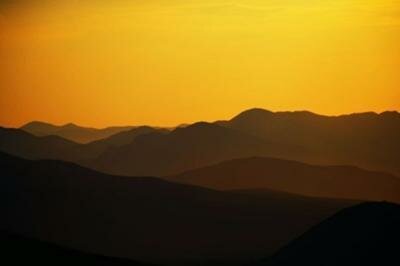Words in Infinite Sky
Mongolian poets have been exploring new techniques of late, but their work is still very much a paean to Nature, the desert and the steppes

The rich tapestry of Mongolian poetry is firmly rooted in the natural environment that dominates even the most urban aspects of life. Nature, pre-occupation with one’s ancestors and heritage, plus a natural philosophical bent combine to create a poetic landscape which often appears to hanker for the past, for the light on the steppe, the challenge of the Gobi Desert and reverence for parents. It avoids sentimentality through stating its observations in very simple language.
In Suglegmaa Hurgaa’s Nomad the strength of the poem is not achieved through startling images but through an almost childlike imagination
Stars sparkle, singing of the moon
and a simple statement of fact
Birds fly towards the sun - which I’ve never been to -
A Western poet may perhaps not feel the need to state that s/he had never travelled to the sun yet, such is the affinity that Mongolian poets have with all creation, that, within the context of Nomad this, appears to be very natural. It is this combination of simplicity with the accumulation of verifiable, often geographically-based facts laced with a massive theological leap
There is no death
Only a matter of changing forms.
Sins don’t actually exist
You can easily turn into a holy man.
which renders the poem its effectiveness.
Suglegmaa Khurgaa’s The Essence portrays the fierce pride that most Mongolians feel towards their country. Its heritage lies in the very nationalistic poems My Native Land and Star by Dashdorjiin, regarded as the founder of Mongolian literature, but today’s poets Dulmaa Shagdar (I Love My Soil), and Munkhtsegtseg Gompildoo (Don’t Betray My Song) also echo such sentiments.
Although Ulziitügs Luvsandorj is, perhaps, less traditional, her poems are still rooted in the natural world. In When I Look at Mountains the poet completely identifies with the surrounding landscape and elements:
After the rain has fallen, I am grass, and

When sparrows start to sing, I am the morning.
I am not human.
When stars flare up, I am the darkness
but these sentiments are laid alongside the daring
When girls shed their clothes, I am the spring
Ulziitügs has published five volumes of poetry, one of fiction, and has gained many awards including the National Literary Award and the Award of Mongolian Writers’ Union. However, although poets are revered in Mongolia there appears to be little or no state funding – “This year I’m working on Government project ‘the 50 volumes of World classic literature’ as the editor,” she told me in an interview.
Whilst the patriotic poems may find their roots in Dashdorjiin, Ulziitügs husband, the poet G.A. Ayurzana, takes his inspiration from the nineteenth century monk Danzanravjaa whose poems sang of wine and love. In Ayurzana’s poem Standing in the silence of the night one has the traditional topics of the beauty of nature allowing one to perceive something which is beyond the immediate senses and interwoven with
The words of the Buddhas in the infinite sky.
Suglegmaa, Ulziitügs and Ayurzana received their education during the Soviet-influenced regime and Dulmaa Shagdar rose to eminence under it, but the democratic revolution has witnessed the emergence of many new poets. Certainly it is doubtful if Enkhboldbaatar’s A Set (Absolute Values) with its surrealistically random world would have ever been published previously.
point (not a new start), / one (this is the real start), / comma (links a numerical sequence), / fifty six (not an age, not an order, not anything), /
Over lunch with Enkhboldbaatar he spoke of founding the U.B. Boys – a group of young men who perform their poetry – and how he continually pushes against the boundaries of form and structure.
Younger poets are moving away from purely poems that solely extol the wonders of nature and there will be a further movement with the increased urbanisation. However, it will be many years, if ever, before the inherent love affair with Nature, the steppe, the desert, is eradicated.

Ruth O'Callaghan’s latest poetry collection Goater’s Alley (Shoestring) was published March 2010 and is now being re-printed. She also hosts two poetry venues in London. Ruth was awarded an Arts Council grant to visit Mongolia to collaborate with women poets on a book, a CD and a website, Poetry Mongolia. Both the book and the CD are available from www.soaringpenguin.co.uk.
Images from www.mongolia-attractions.com, www.missionslaunch.com and www.https://weibel-lines.typepad.com/.

















